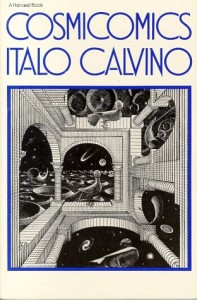
Poe’s narrative tells of a girl manufacturing silk in 19th century France who imagines the romance of making silk in China instead. The writing is concise and evocative, and while I read the book very quickly, I could have spent months enjoying all the possibilities on the page. I copied down one of the pages so I could unpack it here with you.
The benefactor offered something other than work on farms.
The benefactor set out to board, lodge, and clothe girls as well as give them wages.
The benefactor built the silk factory.
The benefactor taught the art of silk.
No, the benefactor taught the manufacturing of silk.
The benefactor became the hero of the country.
The benefactor found docile bodies.
What I first loved about this page was Poe’s use of anaphora (the repetition of a phrase at the beginning of a sentence). You’ve likely heard me go on and on about anaphora and epistrophe before. These forms of rhetorical repetition are something I use in my own writing and they rarely fail to entrance me.
In this selection, Poe starts (almost) every line with “The benefactor.” This grounds the selection (she does not use this same form on any other page) and provides a strong framework for the reader to explore—the benefactor. As a reader we get used to the idea of having a benefactor even as we begin to understand what the benefactor does. At first he seems benevolent—offering work away from farms where girls are cared for and paid. He creates something new by building a silk factory. He teaches the art of making silk.
But then Poe breaks the anaphora by starting the fifth line with “No.” Our feelings about the benefactor are about to change. The art of making silk and the manufacturing of silk are not the same. The dream is not the same as reality. Now that I’ve seen the benefactor is not exactly as he appears, I will question the statements about him more. The next line where he becomes “the hero of the country” is tainted now because we know there is more to know about him.
Poe brings this duplicity home when the benefactor finds “docile bodies.” They could be docile for working, but it is impossible to ignore the understated implication that he is using his workers for sex. And because it is understated and because we were first impressed with this benefactor as the narrator was, the betrayal is deeper.
Each page in this book is woven in its own pattern, and one of the things I would love about spending more time with it is unraveling the strands of logic that make the larger tapestry. If you read this book, please share with me the pages and stories you love most.
If this review made you want to read the book, pick up a copy of Hélène from Small Press Distribution.
 I’m so excited to finally be reviewing World War Z: An Oral History of the Zombie War by Max Brooks. On Saturday, I watched the piling masses of zombies and Brad Pitt in the preview for the film (on the front of Twilight) and rushed home to steal the book from my husband and start reading. The rest of the weekend was me avoiding everyone (including the aforementioned husband) so I could read, read, read.
I’m so excited to finally be reviewing World War Z: An Oral History of the Zombie War by Max Brooks. On Saturday, I watched the piling masses of zombies and Brad Pitt in the preview for the film (on the front of Twilight) and rushed home to steal the book from my husband and start reading. The rest of the weekend was me avoiding everyone (including the aforementioned husband) so I could read, read, read. As I was reading Cosmicomics by Italo Calvino this weekend, I felt like the story “The Distance of the Moon” was somehow familiar. I had seen it—with my eyes, not in my imagination. But it wasn’t quite the same story. It took a few hours for me to remember that I was thinking of Pixar’s La Luna, the short film at the front of Brave.
As I was reading Cosmicomics by Italo Calvino this weekend, I felt like the story “The Distance of the Moon” was somehow familiar. I had seen it—with my eyes, not in my imagination. But it wasn’t quite the same story. It took a few hours for me to remember that I was thinking of Pixar’s La Luna, the short film at the front of Brave. Some writers have the power to immerse the reader in a world so forcefully that your emotions are surrendered to them and your wellbeing is completely at their mercy. That is the experience I was hoping for Love by Péter Nádas.
Some writers have the power to immerse the reader in a world so forcefully that your emotions are surrendered to them and your wellbeing is completely at their mercy. That is the experience I was hoping for Love by Péter Nádas.